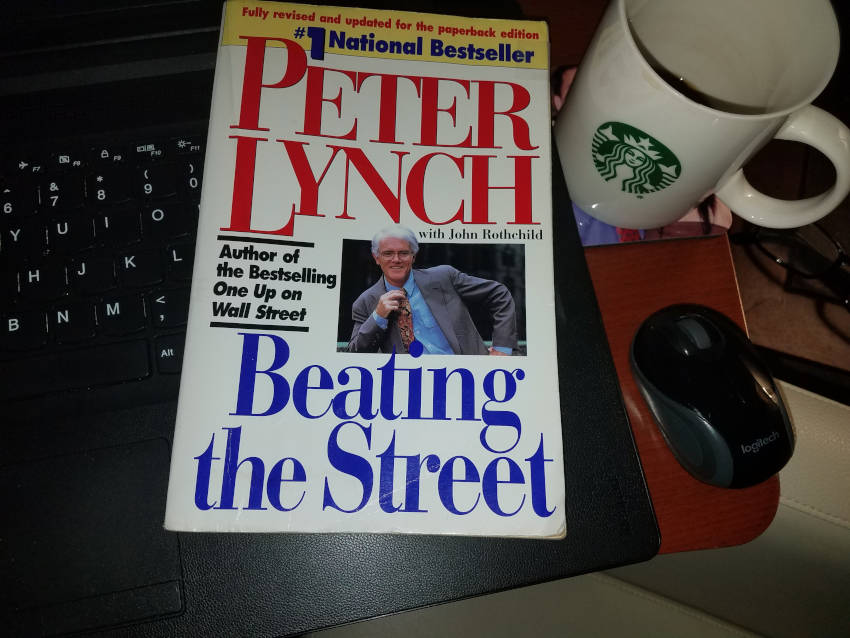
If Peter Lynch were managing your money, you probably wouldn’t complain about high fees. You wouldn’t invest in index funds either. Why would you? He’s one of the greatest investors of all time.
Lynch’s stock-picking skill is legendary, having managed Fidelity’s Magellan Fund for thirteen years with astounding success. He holds one of the best track records—a spectacular 29% annualized return from 1977 until 1990—nearly double what the S&P 500 index produced in the same period.
If you had invested $37,000, on the first day Peter Lynch took over and sold when he left, your investment would have been worth over a million.
What’s especially interesting to me is the fund’s namesake, Ferdinand Magellan, was a Portuguese explorer who tried to conquer the Philippines. Sadly, he got beaten and killed by the Filipino natives instead.
This post, however, is about Peter Lynch’s successful exploits to conquer the stock market. I’ve happened to get hold of a copy of his book, Beating the Street, which I enjoyed thoroughly.
Whether you enjoy picking stocks yourself or not, reading the book can help you become a better investor. Here are a few lessons we can all learn from the book.
Behind every stock is a company. Find out what it’s doing.
When asked on national TV what’s his secret to success, Lynch’s response was “I visited 200 companies a year and read 700 annual reports.” To learn more about the stock, Lynch went to their headquarters, wining and dining executives, often inquiring about their competitors.
Before you make a purchase, you should be able to explain why you’re buying— in a simple language that a fifth-grader could understand. Once the story deteriorates or starts breaking down, it’s time to sell.
Just because a company has a great story, however, doesn’t mean you should invest in it. Wait until it turns out a profit. Long shots almost always miss the mark.
If you can’t find any companies you think are attractive, stay in cash until you discover some. It’s better to put your money in the bank.
Avoid hot stocks in hot industries. Look for bargains instead.
When automobile stocks plummeted in the early ’80s, Lynch invested heavily in Chrysler stock at $2 apiece. He knows the company won’t go bankrupt (well, it eventually did in 2009), having $1 billion in cash in its books. Sure enough, Chrysler rebounded in 1984 after releasing a revolutionary minivan that was selling like pancakes.
Lynch bought nearly every S&L (savings and loans) that came public in the mid-’80s. They were out of favor due to the S&L crisis, mostly due to a real-estate bust in Texas.
If you’re thinking about investing in a troubled industry, buy the companies with staying power as long as the industry is showing signs of revival.
Put your money where your mouth is.
Taco Bell and Cracker Barrel were one of Lynch’s early Magellan winners. He was particularly attracted to restaurants because they were so easy to understand.
Besides having a good balance sheet and track record, he particularly liked Taco Bell because of its potential to expand across the country— Americans have yet to be exposed to its tasty tacos.
Every decade, there’s no shortage of winners: McDonald’s, KFC, and Bob Evans in the ’60s; Taco Bell, Dairy Queen, and Wendy’s in the ’70s; and so has the ’80s, ’90s, and 2000s.
If you’ve invested $10,000 in McDonald’s, a 400-bagger (i.e., multiples of the original share price as coined by Lynch), when it went public in 1965, you would have become a millionaire four times over by 1990.
It pays to be patient. You will be rewarded handsomely.
Often, there’s no correlation between the success of a company’s operations and the success of its stock over a few months or even a few years. But there’s a 100% correlation in the long run. This disparity is the key to making money. It pays to be patient and to own successful companies.
Take, for example, Walmart— a well-run company. It was only in 15% of the U.S. when they were a 10-year-old public company. All they did for the next 30 years, according to Lynch, was to expand from 15% to 100%, and the stock went up 50-fold.
If you study 10 companies, you’ll find a hidden jewel. If you study 50, you’ll find five. There are always opportunities overlooked by Wall Street.
Can you beat the market like Lynch?
Probably not like Peter Lynch— he destroyed the market. But don’t let anyone tell you that you can’t. If you ignore the noise, like bad news and market volatility, and instead follow the companies you own like they’re your babies, you could be successful.
Lynch himself will tell you that you have an edge over the Wall Street experts. You can use this edge by investing in companies or industries you already understand.
If you neither have the time nor the inclination to study the balance sheet, however, you should stick to low-cost stock mutual funds or ETFs.




No Comments